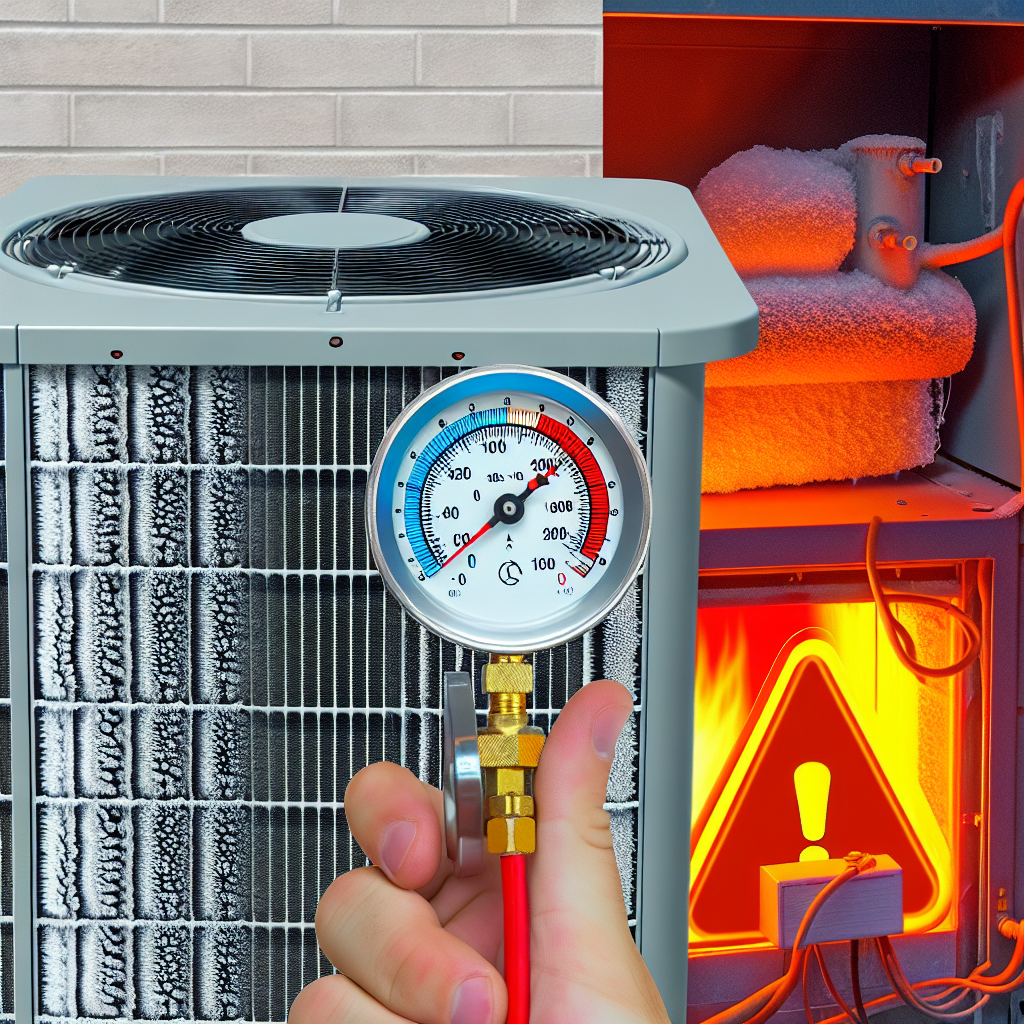Published: May 03, 2025

When it comes to keeping your home cool and comfortable during the hot summer months, your air conditioning unit plays a crucial role. One of the key components that allows your AC to cool the air effectively is the refrigerant. Refrigerant is a substance that absorbs heat from the indoor air and releases it outside, helping to lower the temperature inside your home.
Over time, your AC unit may develop leaks or experience other issues that can cause a drop in refrigerant levels. When this happens, it can lead to a variety of problems that affect the performance and efficiency of your air conditioner. In this blog post, we will discuss the top signs that indicate your AC unit may be running low on refrigerant and needs a recharge.
One of the most obvious signs that your AC unit is low on refrigerant is if you notice warm air coming from the vents instead of cool air. Refrigerant is responsible for absorbing heat from the indoor air, so when there isn't enough of it in the system, the air being circulated in your home will not be as cool as it should be.
If your AC seems to be running constantly but is struggling to keep your home at a comfortable temperature, it could be a sign of low refrigerant levels. When there isn't enough refrigerant in the system, your AC has to work harder to cool the air, leading to reduced cooling capacity and increased energy consumption.
Another common indicator of low refrigerant levels is the presence of ice buildup on the evaporator coils. When there isn't enough refrigerant flowing through the coils, they can become too cold and cause moisture in the air to freeze on their surface. If you notice ice or frost on the coils, it's essential to have your AC unit inspected by a professional.
Leaks in the refrigerant lines can cause hissing or bubbling sounds to occur when your AC is running. If you hear these noises coming from your air conditioner, it could be a sign that refrigerant is escaping from the system. In this case, it's crucial to address the leak and recharge the refrigerant to prevent further damage to your AC unit.
When your AC unit is low on refrigerant, it has to work harder and longer to cool your home properly. This increased workload can lead to a spike in your energy bills, as the system consumes more electricity to compensate for the lack of refrigerant. If you notice a sudden increase in your cooling costs, low refrigerant levels could be the culprit.
Short cycling refers to the phenomenon where your AC turns on and off frequently in quick succession. Low refrigerant levels can cause this issue by disrupting the normal cooling cycle of the unit. If you observe frequent short cycling, it's essential to have a professional HVAC technician inspect your AC system for refrigerant leaks.
Insufficient airflow from the vents can also indicate a potential refrigerant problem in your AC unit. When there isn't enough refrigerant circulating through the system, it can impact the overall efficiency of the air conditioner and lead to decreased airflow in your home. If you notice weak airflow from the vents, it's time to have your AC unit checked for refrigerant leaks.
Maintaining the optimal level of refrigerant in your AC unit is essential for ensuring its efficiency and performance. If you experience any of the signs mentioned above, such as warm air coming from the vents, reduced cooling capacity, ice buildup on the evaporator coils, hissing or bubbling sounds, increased energy bills, short cycling, or inadequate airflow, it's important to consult a professional HVAC technician.
Regular maintenance and timely repairs can help prevent refrigerant-related issues and prolong the lifespan of your air conditioning system. Remember that only a licensed technician should handle refrigerant recharging to ensure the safety and effectiveness of the process. By staying vigilant and addressing refrigerant leaks promptly, you can keep your AC unit running smoothly and efficiently all summer long.
**

Our expert technicians are ready to assist you 24/7!
Contact Us Today!Read our latest articles for helpful information about heating, cooling, and air quality.
Regular HVAC maintenance is essential for improving energy efficiency, extending the lifespan of your system, enhancing...
Read MoreImplement these 10 tips to enhance the air quality in your home, promoting a healthier living environment for you and y...
Read MoreRegular seasonal HVAC maintenance is essential for maximizing system efficiency, ensuring indoor air quality, preventing...
Read MoreSmart thermostats offer energy savings, convenience, learning capabilities, and integration with smart home systems, mak...
Read More